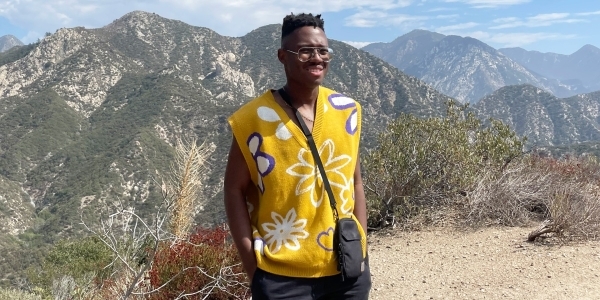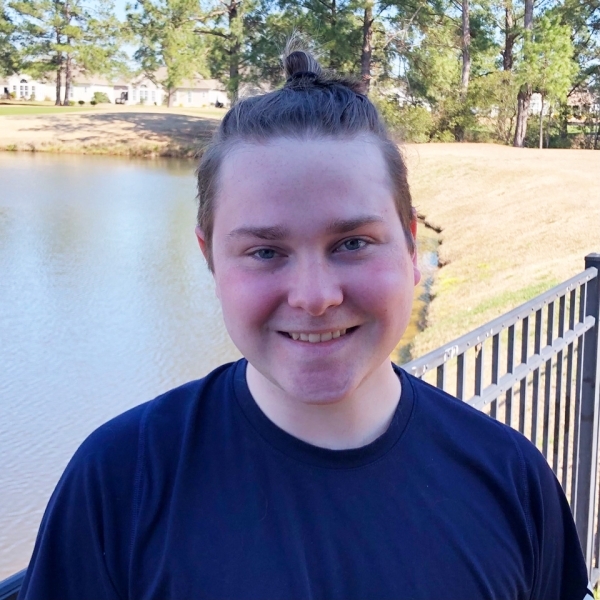
Life generally goes like this: You’re born, go to school, find a job, work for half a century, retire, and then pass the days playing bingo or getting really into Jimmy Buffett. But many Gen Zers and younger millennials feel they’ve been handed an entirely different script for life—and it doesn’t have a happy ending eating cheeseburgers in paradise.
Around the world, a number of workplace trends cropped up this year: the #antiwork movement, “lying flat” and its sister quiet quitting, and the Great Resignation. They’re all symbolic of worker dissatisfaction, and although employees of all ages participated, Gen Z has often found themselves at the center of it all.
Like generations before them, twenty-something, entry-level employees have a reputation for prioritizing work-life balance above all else, unable to shake the narrative that they’re not hustling enough or they’re always leaving jobs for better pay. This is partly due to their life stage and the fact that they entered the workforce during an unprecedented global health crisis that turned the white collar workplace remote.
But it’s climate change that’s the final nail in the coffin for some young employees who are already questioning the value of their jobs. Worse than expected global warming and rising sea levels have painted a dismal picture of the future, leaving some young workers to view corporate work with more apathy and less ambition.
“I view work as basically a necessity to survive,” says Ayem Kpenkaan, a 23-year-old who once worked as a software engineer for an auto retail company and is now a full-time content creator. He believes most of his generation has negative feelings about work. “Why wouldn’t we? We get paid less than previous generations proportionally, we control less wealth, and we have increasingly less to show for it,” he tells Fortune. “I know very few people who wake up excited to go to work.”
When much of the Earth is facing one climate crisis or another (fire, flood, famine), it pushes the nine-to-five further into perspective. “It’s hard to stress too much over work as we can see the world crumbling in front of us,” Kpenkaan says. “Emails or even TikTok numbers seem pretty small compared to all the climate news we receive on a daily basis.”
A new generational worry
The effects of man-made emissions are increasingly evident: Look no further than the flooding in Pakistan this fall, the 2021 heat waves in the Pacific Northwest, or increased wildfires throughout Europe this summer caused by record-breaking temperatures. Older generations might have seen global warming as a distant issue when they were around the same age, but it’s become a chief worry for Gen Z.
They’re the generation most likely to say that addressing climate change is their top personal concern, according to a Pew Research Center poll. A survey of 10,000 16- to 25-year-olds in 2021 found that 60% were “very” or “extremely” worried about climate change, with many noting their feelings affected their everyday lives. And three-fourths of Gen Zers say they’ve had at least one mental health related issue when reading about climate change, per a 2022 Blue Shield of California survey.
That other generations aren’t prioritizing solutions as much as Gen Z creates an ever greater feeling of helplessness. “Climate change and the effects that has on the older generations affect me, since our generation isn’t in a spot to call the shots in government and make things work out the way that we see fit,” says Ryan Buck, a 21-year-old student who runs LGBTQ visibility nonprofit Loud and Proud and does volunteer work for a land conservancy project.
It’s not just a feeling that the world as they know it could end, but that the future isn’t a finite thing. “We’re seeing larger-than-ever hurricanes come through and destroy entire states. Having that promise of longevity, it’s just not something that our generation got. At every single turn, we saw how our lives could be either incomplete or cut short,” says Buck, referring to how Gen Z grew up post 9/11, graduated during a pandemic, and have dealt regularly with school shootings.


For Ryan Buck, 21, climate change has made him want to pursue a job in activism Courtesy of Ryan Buck
The society, economy, and workplace where Gen Zers are building their careers is completely different than previous generations, explains Lindsey Pollak, a career expert on multigenerational workplaces. It’s not just about the environment; she cites student debt, the pandemic, increasing political division, and the potential fall of democracy in the U.S. as other pressure points. While these affect everyone, she tells Fortune, it translates differently depending on how old you are.
Older generations might be thinking about their children more, but twenty-somethings might be more worried about their careers and financial prospects. “It’s a perfectly logical reaction to the really chaotic, concerning times that we find ourselves in,” Pollak, who is based in New York City, says. “When it’s 75 degrees in November [in the Northeast], that feels weird.”
Gen Z is checking out of saving and career building
All of this uncertainty plagues Gen Z, whether in the workplace or in their bank accounts, prompting them to tap out of planning for the future.
“It feels weird to be going into my job every day knowing that the looming future—or lack of a future—is just completely out of my control,” says George Oglethorpe, a 25-year-old worker at a creative agency who views work as more necessity than anything.
It’s also created more of a fatalist mindset toward saving. “I want to enjoy the world while I can, I want to spend time with my family and loved ones, and although I would love to own a house I know that is now probably not only pointless, but also incredibly unrealistic,” Oglethorpe adds.
It’s not surprising that younger generations are becoming increasingly disillusioned, as major life milestones like buying a home and retiring become more difficult to afford. Work starts to feel like a marathon with a finish line that keeps getting pushed back—and what’s at the end of the finish line is also uncertain. After all, it’s difficult to look forward to your days retiring as a parrot head if Florida will be underwater.
As people live longer, the workforce is changing. “It’s not uncommon to look up the career ladder in your organization and see people in their 60s, 70s, and even 80s who are still going,” Pollak says. “So when you’re 22 looking at that and you say ‘Oh my gosh, I don’t have a 30-year career ahead of me, I have a 50-year career ahead of me’—that’s a really daunting feeling.”
The warming world has Gen Zers ditching corporate for activism
While climate change might make someone care less about their job, it can also be a key factor in why they will—or won’t—take a job.
Those with climate anxiety fall into one of three groups, Kpenkaan, the content creator, theorizes: “The hustle culture aficionados who believe if they get rich enough they can money their way through the upcoming crises; the people who are sort of going through the motions and trying to find joy outside of work; and those who are starting to engage in activism to combat the upcoming climate crisis and working only to support themselves.”
Pollak says Gen Zers who attend her workshops often say they want to work for a company that aligns with their values, including environmental concerns. She notes companies are becoming more vocal about their environmental commitments and beliefs while recruiting. But the majority (81%) of respondents in the Blue Cross survey of Gen Zers said leaders aren’t doing enough to address climate change.
For Buck, the lack of good pay for younger workers and general inability to convince generations who are in power to become more active in addressing climate change feels a bit like a kick in the face. But that doesn’t stop him “from wanting to work and wanting to get my passions out there and trying to do something bigger than myself.” That means working for himself or for a company that aligns with his beliefs: “I can’t say that I would ever want to work for…an oil company that’s making 500% more in profits this year and not paying their workers any more.”
Instead, Buck chose activism. He plans to cultivate a vegetable farm via the land conservancy project he volunteers for to provide food to his community and reduce emissions. Buck says if he was to work in a corporate environment, he’d likely be antiwork, but recognizes that “sometimes, we need to make ends meet.” After all, climate activism can be a rich man’s game; some Gen Zers may want to focus on activism but need to prioritize a stable income instead.
The types of jobs that live outside of the corporate world seem like a way out of the existentialism for Kpenkaan, too. “My previous job was much less enjoyable than my current one, but even working in a field I prefer, I would still rather not do anything,” he says. “Maybe if I was doing something that was vital to humanity like a doctor or farmer, but most jobs seem so fake.”





